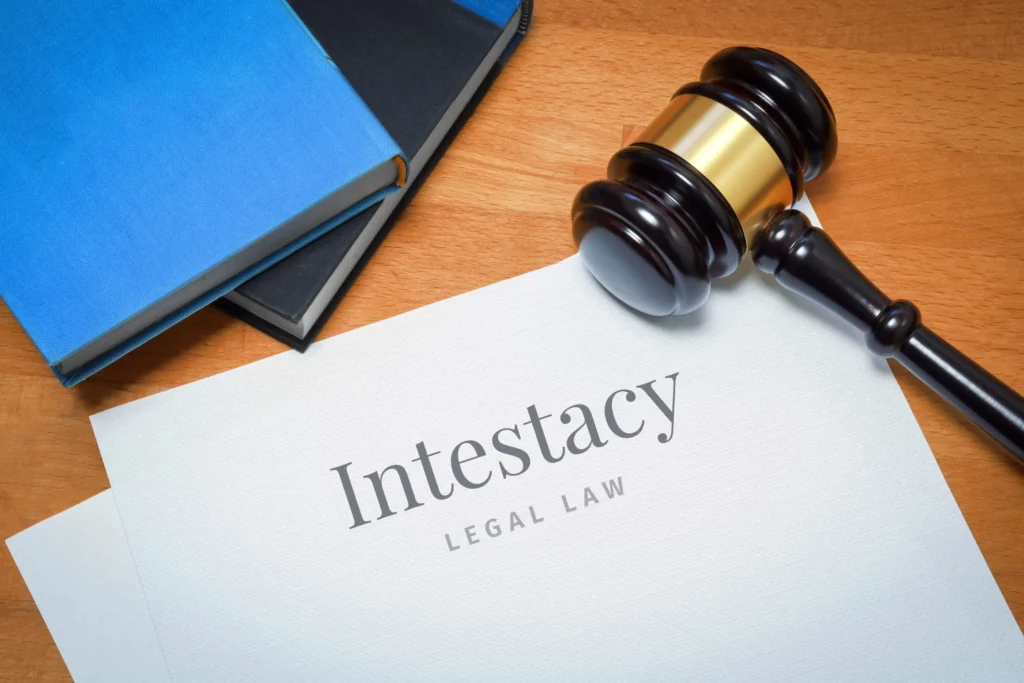If you’re navigating the probate process after losing a loved one in Texas, understanding the Texas probate rules for community property is essential. Texas follows a community property system, which means not all property is treated equally during probate. The difference between what’s considered “separate property” and “community property” can significantly affect who inherits what, how assets are divided, and whether surviving spouses face unexpected claims or delays.
In this comprehensive guide, we’ll break down the Texas probate rules for community property in clear, practical terms—without the legal jargon. Along the way, we’ll explore real-life scenarios, highlight common mistakes, and explain how to identify what belongs to the estate, what passes automatically, and what might be up for debate.

Why Community Property Rules Matter in Texas Probate
In many states, probate is a straightforward process where the estate is divided based on the will or intestate succession laws. But in Texas, community property laws make the situation more complex, especially when dealing with married couples. The Texas probate rules for community property determine whether the deceased’s half of the marital estate passes through probate or transfers automatically to the surviving spouse.
Failing to understand these rules can lead to estate disputes, misfiled claims, or probate delays that frustrate families and potentially cost thousands in legal fees. That’s why understanding how Texas defines and treats community property during probate is critical.
What Is Community Property in Texas?
Texas is one of just nine community property states in the U.S. Under the Texas probate rules for community property, any property acquired by a married couple during the course of the marriage is presumed to be community property—regardless of whose name is on the title or account.
This includes:
- Salaries and wages earned by either spouse during the marriage
- Real estate purchased during the marriage
- Bank accounts or retirement plans funded after marriage
- Debts incurred during the marriage
Everything acquired by either spouse while married is presumed to be jointly owned unless proven otherwise.
What Is Separate Property Under Texas Law?
Separate property includes assets one spouse owned before the marriage or acquired during the marriage through gift or inheritance. The Texas probate rules for community property make a clear distinction here. While community property may pass directly to the surviving spouse, separate property is subject to more complex probate proceedings.
Examples of separate property:
- Property owned before marriage
- Gifts given to one spouse alone
- Inheritances received individually
- Settlements for personal injuries (excluding lost wages or medical costs)
This distinction is not just academic. Whether an asset is community or separate can dramatically change how it is distributed in probate and whether it is even subject to probate at all.
Real-Life Example: Probate Pitfall in Community Property
Imagine Sarah and Tom, who were married for 20 years. They bought a home together and saved in a joint retirement account, but the home title was only in Tom’s name. After Tom passed away, Sarah assumed the house was hers since they bought it together.
Unfortunately, under Texas probate rules for community property, the title being in Tom’s name triggered a probate process. The house was presumed to be community property, but without clear documentation, Tom’s adult children from a previous marriage challenged Sarah’s claim. What could have been a smooth transition turned into a court battle that lasted a year and cost tens of thousands in legal fees.
Community Property and Probate: What Happens to Each Half?
When one spouse dies in Texas, their one-half interest in the community property may pass in several ways:
- By Will: If the decedent had a valid will, their half of the community property goes to the named beneficiaries.
- To the Surviving Spouse: In some cases, especially when all children are from the current marriage, the surviving spouse may inherit the deceased spouse’s portion automatically.
- By Intestate Succession: If there is no will, Texasintestate laws apply.

Under the Texas probate rules for community property, if the deceased had children from another relationship, their share of the community property might go to those children instead of the surviving spouse. This rule often surprises and upsets grieving spouses who were unaware of it.
Probate of Separate Property in Texas
Separate property always goes through probate unless it’s held in a trust, transferred via beneficiary designations, or structured in joint survivorship. According to the Texas probate rules for community property, the decedent’s separate property is treated differently than community property.
How Separate Property Is Distributed in Probate
- If the deceased had children (even from another relationship), the children inherit thereal estate classified as separate property.
- The surviving spouse inherits one-third of the separate personal property, while the children inherit the rest.
This split can create practical and emotional problems. For example, if the deceased owned a lake house before marriage and didn’t include it in a will, the children may now share ownership with the surviving spouse—making it difficult to sell or manage the property.
How the Type of Probate Affects Community Property
Texas offers multiple probate paths depending on the complexity of the estate. The choice of procedure can influence how Texas probate rules for community property are applied.
Independent Administration
This is the most common form of probate in Texas. It allows the executor to administer the estate without court supervision. The rules for community property still apply, but decisions can be made faster and with less cost.
Dependent Administration
This involves court oversight and is more formal and time-consuming. It’s usually chosen when there are disputes among heirs or unclear titles involving community property assets.
Muniment of Title
This streamlined process can be used when the will is uncontested, and the only need is to transfer title of property. It’s particularly useful when dealing with homes that are clearly community property.

Small Estate Affidavit
If the total value of the estate is $75,000 or less (excluding homestead and exempt property), the surviving spouse or heirs can use this simplified option. However, proper classification of property as community or separate is still required.
Proving Community Property in Probate Court
It’s not enough to claim something is community property—you have to prove it. Under Texas probate rules for community property, the burden is on the party making the claim to provide evidence.
Useful Documentation Includes:
- Titles with both spouses’ names
- Financial records showing joint contributions
- Deeds that use community property language
- Prenuptial agreements or marital property agreements
When documentation is lacking, courts will default to the community property presumption but may still allow heirs to present opposing evidence. This is where a probate attorney becomes essential.
Real-Life Example: The Car That Split the Family
After John passed away, his wife, Linda, claimed his 1969 Mustang was community property. His children from a previous marriage insisted it was separate property he restored before they married. No title change had ever occurred, and John’s name alone was on the registration.
The court ruled the car was John’s separate property. His children inherited it, not Linda. If John and Linda had updated the title or signed a community property agreement, she might have kept the car. This is a perfect illustration of how the Texas probate rules for community property play out in real life.
Avoiding Probate Conflicts Over Community Property
Probate disputes often stem from confusion over what belongs to whom. The best way to prevent this is through proactive planning and clarity.
Tips to Avoid Conflict:
- Keep updated records of asset ownership
- Use survivorship agreements on bank accounts and vehicles
- Create a will that clearly defines community and separate property
- Consider a living trust to bypass probate altogether
- Talk openly with your family about your estate plan
Remember, under Texas probate rules for community property, your intentions may not matter if you don’t document them properly. Courts rely on the law and the paperwork—not family stories or verbal promises.
Community Property with Right of Survivorship
One way to avoid probate altogether is by using a right of survivorship designation on community property. This is a legal agreement that ensures, when one spouse dies, the other automatically inherits the deceased spouse’s share.
This option is not automatic—it must be explicitly stated. Without it, the deceased spouse’s share of community property may be subject to probate, even if both spouses contributed equally to the asset.
If you’re looking to avoid unnecessary probate complications, understanding how Texas probate rules for community property apply to right-of-survivorship agreements is crucial.
The Role of a Probate Attorney in Texas Community Property Cases
Given the complexities involved in distinguishing separate and community property, hiring an attorney can be one of the smartest moves you make during probate.
A Probate Attorney Can Help:
- Classify assets correctly
- Defend your claim in court
- File appropriate probate applications
- Resolve disputes among heirs or co-owners
- Prepare affidavits and court documents

In many cases, probate attorneys recover more for their clients than individuals handling the process alone—especially when large estates or multiple marriages are involved.
Final Thoughts: Navigating Texas Probate Rules for Community Property
The Texas probate rules for community property are not just rules—they’re roadmaps to what happens after someone passes away. Whether you’re a surviving spouse, adult child, or executor, knowing how property is classified and distributed is essential for protecting your rights and avoiding costly mistakes.
Don’t assume that your contributions, relationships, or intentions will automatically dictate what happens during probate. Texas law draws a hard line between community and separate property, and that line determines the probate path ahead.
By understanding the rules, gathering the right documentation, and seeking legal guidance when necessary, you can ensure the probate process goes smoothly—and honor your loved one’s legacy the way they intended.








